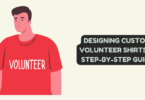
books classroom
(Source: https://www.pexels.com/photo/books-classroom-close-up-college-289737/)
In the last few months, the COVID-19 pandemic has transformed the lives of many people in the UAE including university students and higher education institutions. Universities have been thrown into confusion and uncertainty; they now offer online classes and face other challenges like financial issues. Universities are looking for strategies on how to reopen; some offer online classes while others offer online and face-to-face learning.
How Coronavirus Spreads
The COVID-19 pandemic is caused by the SARS-CoV-2 virus; it spreads between individuals, especially those close to each other. The virus spreads from an infected person’s nose or mouth in small particles when they sneeze, cough, wheeze, breathe heavily, etc. The virus also spreads when it gets into a person’s eyes, mouth, and nose, this happens when you’re in direct contact with an infected individual.
This can happen in specific situations specifically indoors, poorly ventilated spaces, and crowded areas where infected individuals spend more time with others. For instance, places of worship, restaurants, classes, offices, etc.
Some people confuse between ‘asymptomatic’ and ‘pre-symptomatic’. Asymptomatic refers to infected individuals who don’t have symptoms. Pre-symptomatic refers to individuals who don’t show any symptoms but develop them later.
How COVID-19 will Impact the Higher Education Sector

writing notes
(Source: https://www.pexels.com/photo/writing-notes-idea-class-7103/)
As COVID-19 continues to impact many sectors, universities and students continue to feel the pinch as they try to grapple with the changes. Here is what to expect;
Online Learning
Universities across the world closed their doors to curb the spread of the Coronavirus. This has led to online learning and assessment. Unlike what most people assume, learning online in a university in Dubai requires the same input as face-to-face learning. Higher learning institutions are embracing this strategy to complete their school year.
Computer and IT equipment are now in demand as universities look for excellent infrastructure to provide quality education. Higher education institutions are transforming their teaching methods by using intellectual capital. Universities use available platforms like Google Classroom, Microsoft Platform, Zoom, and Webex Blackboard to enhance their online learning.
Financial Challenges
The COVID-19 pandemic will force the government to restrict its budget to learning and research activities focusing on national building. Universities will have to work with fewer funds and make effective, efficient, and transparent governance arrangements.
The Coronavirus has affected most people financially, that is why some universities in Dubai choose to slash their tuition fees to ease the financial constraints on students. Most higher education institutions had financial incentives even before the COVID-19 outbreak. Every student is different and has been affected by this pandemic in different ways. Many universities collaborate with students to find viable solutions to ensure that they continue with their studies.
Admissions
When applying for a university in Dubai, you might find out that the admission process has changed. Most universities are utilizing online platforms to showcase their institutions through virtual tours, information sessions, and even chatting live with admissions counselors. You can learn about various universities from the comfort of your home.
You can participate in many events and check university websites regularly to stay up to date with events and other changing information. Universities can build virtual programs that would have been limited by budget or travel restrictions. You can also sign up for various university events.
International Students
It’s obvious that COVID-19 has affected students all over the world; however, international students have unique challenges. Some might face mental health challenges especially if they already have pre-existing mental health conditions.
International students worry about issues like graduation, visa, or even find it hard to get practical training opportunities. Some international students might find it difficult to cope with online learning. Non-native speakers might find it more difficult as they struggle to understand various social cues. Although there are many challenges, universities support international students through counseling and providing crucial resources to make them comfortable as they continue studying.
Student Safety
Some universities incorporate face-to-face and online learning; higher learning institutions have measures to prevent the spread of COVID-19. Universities encourage students and instructors to wear masks, especially when it is difficult to maintain social distancing. It’s also advisable to have several face masks to exchange every day.
Other health precautions like washing hands regularly are encouraged by providing hand washing soaps and sanitizers around the campuses. Students are encouraged to stay home when sick. Seek medical attention when you have fatigue, muscle aches, fever, cough, sore throat, runny nose and nasal congestion, diarrhea, nausea or vomiting, etc. Some universities also encourage daily temperature readings. It’s also necessary to inform your university if you contract the virus after attending face-to-face classes.
The Coronavirus has impacted every sector in the world including universities and students. Most universities have transformed how they teach and interact with students. Online platforms allow students to learn from anywhere in the world. Although there are various challenges, universities and students have found ways to overcome them.







You must be logged in to post a comment.